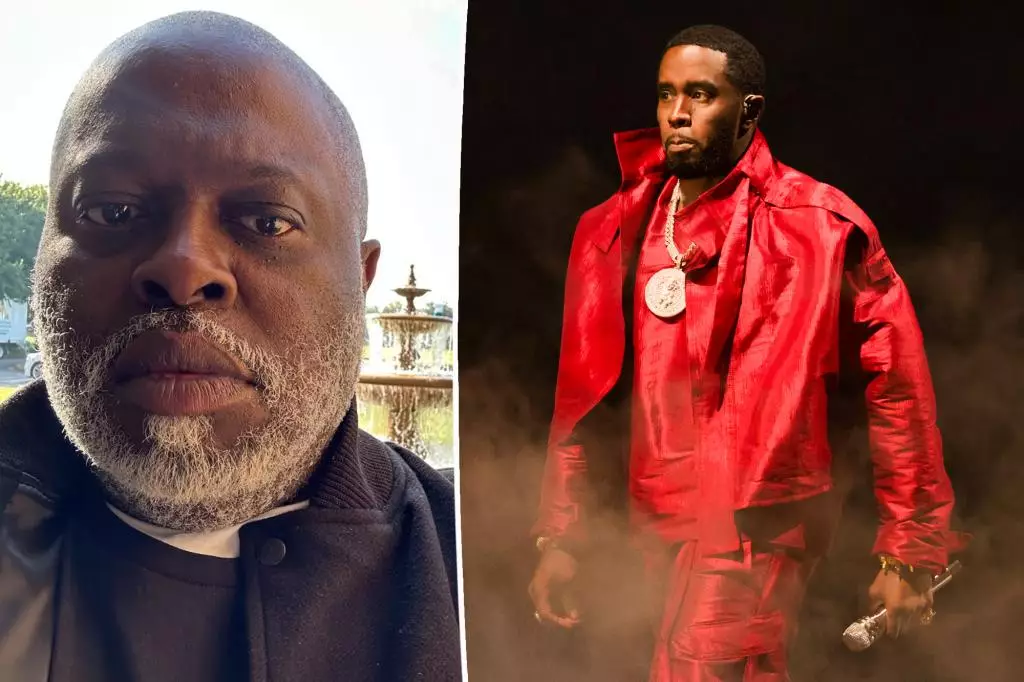Amid the swirling controversies surrounding public figures, Sean “Diddy” Combs has launched a significant defamation lawsuit, asking for $50 million in damages. This legal action, directed against music manager Courtney Burgess, attorney Ariel Mitchell, and Nexstar Media, which operates NewsNation, highlights the precarious boundaries between free speech, media responsibility, and personal reputation. The lawsuit sheds light on the potentially devastating consequences of unfounded allegations, particularly when amplified by the media.
Background of the Allegations
On the surface, Combs’ lawsuit targets sensational claims made by Burgess—claims that he asserts were baseless and damaging. After testifying in front of a grand jury, Burgess appeared on NewsNation, asserting that he possessed flash drives filled with videos purportedly featuring Combs engaged in sexual acts with various individuals, including minors. These allegations are not just serious; they are potentially catastrophic for the individual’s legacy and career.
What compounds the issue is the assertion that these videos show not only famous figures but also children allegedly under the influence. Such explosive statements can spiral out of control, causing irreparable harm long before a court decision is reached. Moreover, Mitchell’s comment regarding one of the male celebrities being “more high-profile” than Combs further exacerbates the scandal, potentially dragging others into a situation that could tarnish numerous reputations.
The Role of Media in Propagating False Claims
In a world where media outlets often race to break stories before verifying their content, especially in celebrity culture, the repercussions can be far-reaching. Combs’ lawsuit accuses NewsNation of recklessly rebroadcasting these allegations without thorough investigation, amplifying the damage caused by falsehoods. This episode raises questions about journalistic integrity and the responsibility modern news organizations have in the age of information overload.
The complaint emphasizes that this incident is not only a matter of personal humiliation for Combs but also part of a larger trend where reckless reporting can lead to widespread misinformation. By allowing such claims to air without rigorous substantiation, news outlets play a role in the cycle of sensationalism that has plagued celebrity culture for years. The legal repercussions of such actions are now front and center in the Combs case, challenging media giants to reconsider their protocols.
Beyond the immediate public relations fallout, there are significant legal implications. Combs’ complaint asserts that the allegations hurled by Burgess and endorsed by Mitchell lacked any factual basis. According to Combs’ legal team, both individuals acted recklessly—patently disregarding the truth of the statements made. This raises pivotal questions about the responsibilities of lawyers, especially when representing clients making explosive claims that can ruin lives.
The lawsuit’s emphasis on the concept of reputational and economic injury speaks volumes about the high stakes involved. Combs argues that the reputational harm inflicted is profound and could severely impede his future endeavors. This legal narrative encapsulates the central conflict between personal rights and media freedoms, underscoring the potential for abuse when allegations lack merit.
While Combs deals with the fallout from these allegations, it is essential to remember the broader context. He is currently facing grave criminal charges, including sex trafficking and racketeering conspiracy, which add another layer of complexity to his case. The intersection of these legal challenges amplifies the stakes; he faces a potential life sentence if convicted. Thus, the defamation lawsuit also has implications for his ongoing criminal proceedings, particularly in terms of public perceptions and the fair trial he insists he deserves.
This lawsuit is indicative of a growing recognition among public figures that falsehoods, particularly those disseminated rapidly across social media and traditional platforms, cannot go unchallenged. It serves as a warning to those who may think they can manipulate the media without consequences.
Ultimately, the Combs’ defamation lawsuit is much more than an isolated incident; it is a pivotal point in the ongoing dialogue about media responsibility in celebrity culture. Combs’ legal actions could set a precedent, encouraging other public figures to assert their rights against unfounded allegations and setting a standard for verifying claims before they are reported.
Sean Combs’ case underscores the urgent need for accountability in media reporting and the potential for legal ramifications surrounding defamation in an era shaped by rapid information sharing. As litigation unfolds, the ramifications for all parties involved—and for society at large—could reshape the dynamic between public figures and the media landscape.
